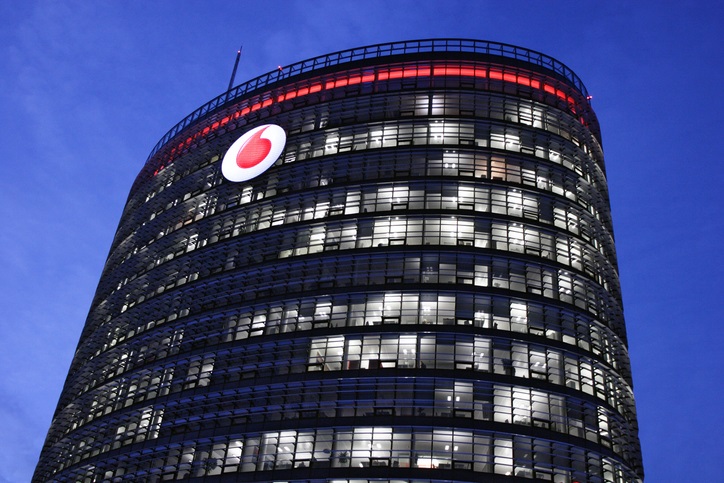Vodafone’s prospects and 7% dividend yield remain undervalued
The shares are up over 10% this week, but there should be much more to come, argues this expert.
11th November 2020 15:07
by Graeme Evans from interactive investor
The shares are up over 10% this week, but there should be much more to come, argues this expert.

The potential for a re-rating of Vodafone (LSE:VOD) shares was raised today when a leading industry analyst signalled the mobile phone giant is over the worst of its revenues downturn.
UBS's Polo Tang said next Monday's second-quarter and half-year results were likely to represent a low point, with Q2 service revenues set to be 2.3% lower due to the impact of travel bans on roaming activity.
He expects a recovery in the current quarter to 1.2% lower and says shares should be trading at 188p, compared with the 116p seen this afternoon after a rally of 9% so far this week on the back of the Pfizer vaccine breakthrough.
The FTSE 100 stock is still no better off than in August, with Vodafone and BT (LSE:BT.A) among telecom stocks shunned in the pandemic despite their exposure to working from home trends.
- Vodafone shares: 8% dividend yield and potential to double
- Vodafone: Q1 results and an IPO in 2021
- Vodafone: the logic behind 80% share price upside explained
- Take control of your retirement planning with our award-winning, low-cost Self-Invested Personal Pension (SIPP)
Data usage on both mobile and fixed broadband continues to grow strongly, which should drive average revenues per user amid evidence that consumers are willing to pay more for services.
The recent launch of a new 5G iPhone should stimulate demand, with Tang noting anecdotal evidence that Vodafone has performed relatively well in Germany, the UK and Netherlands.
Tang thinks that the share price currently assumes no improvement in service revenues, leading to low-to-mid single digit annual earnings declines.
He said:
“While the shape of any recovery may not be linear, we see Vodafone as too cheap and see scope for the shares to re-rate as European service revenues recover.”
The company has a loyal following among retail investors, based on factors such as its sheer size, cash generative ability and chunky dividend yield, which, at a projected 7.3% for 2020 trading, is attractive when many big companies have chosen not to pay out at all.
UBS is not alone in thinking the company is undervalued, with Deutsche Bank recently highlighting a 230p price target based in part on the value of infrastructure assets and the prospect that the company will resume growth next year.
A day after its Q2 update, Vodafone will shine a light on the broader value of the company's assets when it hosts a capital markets day for the planned Frankfurt IPO of Vantage Towers, which boasts 68,000 towers and leading positions in almost all of its nine markets.
- Vodafone: the logic behind 80% share price upside explained
- Take control of your retirement planning with our award-winning, low-cost Self-Invested Personal Pension (SIPP)
Deutsche analyst Robert Grindle said recently that deals elsewhere in the sector had given a favourable view on assets within Vodafone, which he calculated were the highest of the European telco large-caps and equivalent to 75% of enterprise value.
UBS's Tang thinks that next week's guidance from Vodafone will continue to point to a broadly flat underlying earnings picture for the full year and free cash flow in the region of more than 5 billion euros. European service revenues are forecast to be down 3.5% in the second quarter, improving to a fall of 2.1% in the current quarter.
Deutsche recently noted the biggest threats to the Vodafone recovery as increased competition, foreign exchange volatility and execution risk on recently acquired assets from Liberty Global, as well as longer term economic malaise due to Covid-19.
These articles are provided for information purposes only. Occasionally, an opinion about whether to buy or sell a specific investment may be provided by third parties. The content is not intended to be a personal recommendation to buy or sell any financial instrument or product, or to adopt any investment strategy as it is not provided based on an assessment of your investing knowledge and experience, your financial situation or your investment objectives. The value of your investments, and the income derived from them, may go down as well as up. You may not get back all the money that you invest. The investments referred to in this article may not be suitable for all investors, and if in doubt, an investor should seek advice from a qualified investment adviser.
Full performance can be found on the company or index summary page on the interactive investor website. Simply click on the company's or index name highlighted in the article.